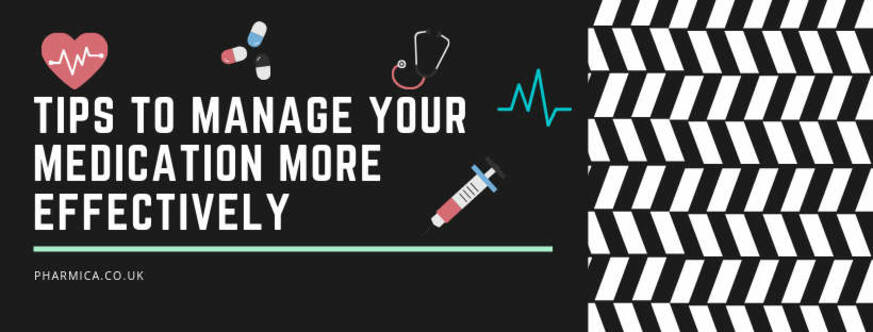
Effective management of medication plays a vital role in managing health conditions. Improper use of drugs can either slow down the recovery process or even be harmful. When you take more than one medication, it is essential to manage your medications to avoid errors which can have unwanted side effects.
For example, there is the possibility of missing a dose, taking one prescription in place of another, or even overdosing. The key to effective management of medications is organization. The following tips will help you manage your medication more effectively.
Set Reminders
Reminders are used in almost every area of our lives, from an anniversary, a meeting, a date, a birthday, reminders can be a lifesaver. They can also be used to help you remember when and which medication you should be taking; if you are on more than one prescription at any particular time.
You can use the alarm clock on a smartphone to set a daily reminder for each medication. For older adults who do not have smartphones or just don’t like the idea of owning one, there are small reminder devices that can help.
You can also use reminders to know when you should order for a prescription refill. If you know how long each refill will last you, you can set a reminder three to four days before you will run out. This will give you enough time to receive a new batch after ordering online.
Get a Pillbox
A reminder would be no good if you cannot locate the medicine you are supposed to take. Pillboxes can be an invaluable tool in helping you manage your medication correctly. Pillboxes come in different shapes, sizes, and colours.
When picking a pillbox, you should choose one that would adequately accommodate all your medications with extra room. The pillbox should also suit your treatment plan. You can also consider investing in an automatic dispenser which dispenses your prescriptions at a programmed time of the day. These machines can also remind you if you miss a dose and when they need a refill.
Review Your Prescriptions Regularly
Sometimes we may be tempted to stop taking our medications once we begin noticing signs of recovery. From time to time, we should review our prescriptions with a pharmacist to determine whether or not we should stop taking medicine. Sometimes if a drug does not have the same effectiveness as it once did, a pharmacist may prescribe another alternative medication for the same condition.
It is also necessary to consult a pharmacist when you begin taking another medication. This is because some medicines can interact with one another. A drug interaction can leave side-effects that would not naturally be noticed when the drugs are taken individually. Furthermore, you should also consult a pharmacist before you decide to stop making or a change a prescribed dosage.
Store Medications Properly
This is one tip that ensures your drugs remain as efficient as possible for as long as possible. Different medicines have a different storage requirements and shelf-lives. Not all drugs are to be stored in a cool, dry place. Some drugs are to be stored in the refrigerator to keep the active ingredients active.
Incorrect storage of drugs may render the active ingredient contained in your prescription inactive. When this happens, the drugs won’t be as effective as it ought to be. Before buying a drug, ask the pharmacist the best conditions for storage. This information is almost always provided in the leaflet that accompanies the medication.
Comply with Instructions
Compliance with the instruction of your pharmacist can determine how effective the medication will be for you. Missing doses, changing strengths or taking multiple tablets without consultation can be hazardous to your health.
In addition to this, there are certain conditions that some drugs should not be used with. For example, pregnant and breastfeeding mothers are strongly advised to avoid taking weight loss medications as this could threaten the health of the child and production of breast milk. For every medicine you have, it is crucial that you comply with the instructions provided by the pharmacist and the manufacturer guidelines.
Additionally, you should read the possible side effects of taking medicine. This will help you prevent ‘compensational medication taking’ (Taking a medication to alleviate the side effects of another). This information can be acquired from the pharmacist or in the patient information leaflet provided in each medicine pack.
Create an ‘In Case of Emergency’ ICE List
While no one wishes to be in an emergency situation, it can potentially happen at any time and it’s best to be prepared. If your medication is potentially lifesaving, such as Ventolin, the best way to prepare is to develop an ‘In Case of Emergency’ ICE List beforehand. This will make it a lot easier for you to secure emergency prescription refill.
An ICE List contains a list of all your medications and their doses. To make it more detailed, it should include the name of the pharmacist who wrote the prescription, the name of the drug or medicine, the required dose for each, the amount to take daily, and the name and location of your pharmacy. This will mean that if an emergency situation were to arise, a healthcare professional will be aware of all medications currently being taken.
In a Nutshell
Organization remains the key to proper management of medications. The tips listed above are intended to help you organize your medications and plan effectively. These tips can be applied to your personal medication or that of a loved one.